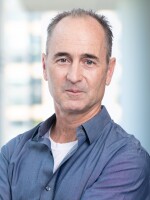STEVE INSKEEP, host:
And let's move from new technology to old. In western Kansas, a utility is vowing to push forward with the project to build a new coal power plant. State regulators last week refused to grant Sunflower Electric a permit for two new 700 megawatt generators and that's because of the carbon dioxide emissions from the coal fire units. Environmentalists were thrilled, and they said that is the first time a coal plant has been rejected solely because of concerns about greenhouse gasses.
NPR's Jason Beaubien reports from Kansas City.
JASON BEAUBIEN: Sunflower Electric officials say they'll pursue every legal avenue possible to overturn the decision blocking their new coal power plant in Holcomb, Kansas.
And announcing his ruling last week, Roderick Bremby, secretary of the Kansas Department of Health and Environment, condemned the plant not because of the technical specifics of this project but because of the air pollution it would produce.
Mr. RODERICK BREMBY (Secretary, Kansas Department of Health and Environment): I believe it would irresponsible to ignore emerging information about the contribution of carbon dioxide and other greenhouse gasses to climate change and the potential harm to our environment and health if we do nothing.
BEAUBIEN: Bremby's ruling raised questions about whether his office would approve any new coal plants. Sunflower spokesman Steve Miller says existing environmental regulations don't limit CO2 emissions and he calls Bremby's ruling arbitrary and capricious.
Mr. STEVE MILLER (Spokesman, Sunflower Electric): It is shocking that one could deny this permit based on rules that those exist.
BEAUBIEN: While this is true, new rules limiting CO2 emissions could be coming. Earlier this year, the U.S. Supreme Court ruled that Federal On Environmental Protection Agency has the authority even though it hasn't been using it to regulate greenhouse gasses.
Jason Beaubien, NPR News, Kansas City. Transcript provided by NPR, Copyright NPR.






